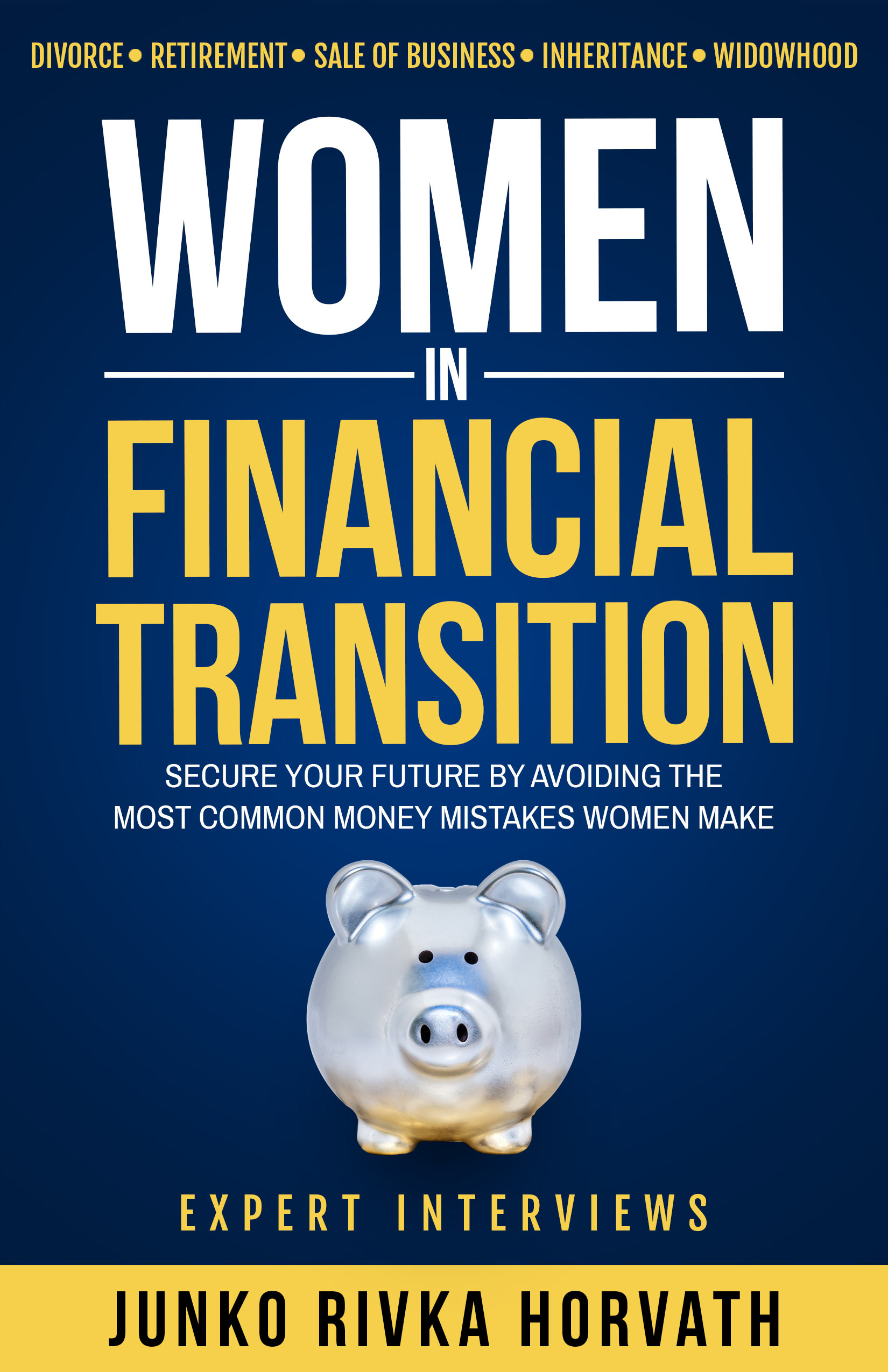Menu


Real Life Stories
Amanda’s Story: Don’t Be Blinded by Love
I’ve been divorced for four years. Throughout my marriage I experienced times when I was blinded by love, while other times I was scared to ever leave my husband, due to financial reasons. I was financially comfortable.
One day I was looking for something in his backpack, and I found a ring that he had purchased. I questioned him about it, and he said that he had bought it for a friend of his because her credit card wasn’t working. He said she would be paying him back. I thought it was a little bit strange, but I left it at that. That night, I was watching television. It was close to 1:00 in the morning when he came and told me that he had bought the ring for another woman and that he was leaving me. He went into my girls’ room and said goodbye to them. He left us that night. The sad part was that a few months before, we had gone to visit the woman he left us for because he had said that she was sick with cancer. At the time he told me that, just like I had shown kindness to others and visited sick people, he wanted to do the same for his friend. I suggested that we all go together and take a road trip to see her in Florida.
I knew that they had met online through a computer game. I knew this because he asked his mom and me what present he should get her as a group gift since she was having two major surgeries: a double mastectomy and a hysterectomy. We made suggestions like fuzzy slippers and lotions, helping him with ideas, but I always thought of her as just a friend because that’s what he told me.
Even though she knew he was married and had met me and my girls, she pursued him and he pursued her. We even took her grocery shopping and out to eat. I was so kind to her. He went back to see her on his own, but again, he said he was just visiting the sick. She even sent us gifts as a thank you for all our help. Little did I know, she and my husband were already romantically involved.
After he left us that night, my husband wanted to come and pack up his stuff. My attorney was very smart and told us not to allow him to do this until he took care of certain things. First, my husband needed to give me a Get (a document in Jewish religion that terminates a Jewish marriage.) He also needed to make arrangements to take care of us financially for the next few months. The rabbi who helped me receive the get told me that we needed to catch him while he was there. The next morning, after my husband came to get his stuff, we went to finalize the get. It was a very emotional and difficult time for me; I was extremely sad and I cried.
This all took place in March. A few months later, in August, we had a date for mediation. A friend came with me for emotional support. We sat in one room and my now ex-husband sat with his attorney in another. The mediator spent more time with him because he hadn’t come prepared. He couldn’t make any decisions! I was so thankful that I had a good attorney who knew what she was doing.
My advice to other women is to keep your eyes open. I was married for nineteen years. Try not to get blinded by love. That’s what happened to me. Make sure you know all of your accounts, where all the money is going, insurance policies, IRAs, anything that has to do with finances. For example, I now know he took money out of his IRA to pay for the ring for this woman. At the time, I had no idea how much he had spent on it. A month later, a receipt and the ring’s brochure came in the mail. He spent $14,000 on the ring. I asked my attorney to find out how he had $14,000 to spend and found out that it came from the IRA, which was technically both of ours.
Additionally, before remarrying, have a conversation with your spouse about how you will be spending your money together and discuss any big purchases that you may make. Lastly, it is key to have a good attorney. My ex-husband had a terrible attorney who didn’t even prepare properly for mediation, while mine was extremely well-prepared.
*1: Rabbi Binyomin Friedman of Congregation Ariel in Atlanta explains. The couple was married in a religious ceremony therefore they required a religious divorce called a Get to allow for remarriage. As stipulated in the marriage document a divorcee receives a financial settlement however in most cases the civil settlement exceeds the amount stipulated in the marriage contract.
What should Amanda have done? What lesson should we learn from her?

The top experts give invaluable divorce advice in Women In Financial Transition
Women In Financial Transition was written by Junko Horvath after interviewing over fifty individuals who went through major life changes. It’s packed with real stories and action steps from professionals. Learn from other women who already experienced these major life transitions so you can transition smoothly through life.
Annette’s Story: Save the Maximum to Enjoy Later
I worked for a world professional services firm for over 25 years before retiring. My pension started at age 60, but without receiving it, I’ve been managing and enjoying my life from my savings.
It was a tough decision. I actually thought about retiring earlier, when I was feeling a little burnt out. My health was suffering, and it took more and more energy to work at full speed. So, I decided that I wanted to make a change. Instead of focusing on client transformations, mergers, divestitures, and shared services—all the things that I did as a consultant and a partner—I started focusing a little bit more on myself. I began discussing my future with a financial advisor about four years before I actually retired. The advisor and I decided that I needed to wait at least two years for a greater comfort level to retire. As I got closer to the time, I made sure that I wouldn’t have to work another day in my life. I had enough runway. My financial plan was to live until I was a hundred, which I will do. Even living to a hundred, I wanted to have money to give to people I care about, a charity, a trust or whatever.
Now, I’m looking at the numbers and everything looks too good to be true. I’m too young. My advisor said, “well, this is possible even with fairly conservative assumptions.” Now that I’m more confident and comfortable with the way things are going and the way I have been living, I’m starting to talk with my advisor about doing much more risky things. The first couple of years after retirement, I was in a little bit of shock wondering if this was just a dream or if it was real. This is awesome. I have a great life now and I’m healthier and happier. So I’m wondering, what else can I do now? I’ve been on some boards and I’m looking at some angel investing and a couple of things like that. I have room to do this in my portfolio. I want to make smart decisions about money and I don’t want to go crazy risky. So, I will invest in a female entrepreneur or something that I’m really passionate about. I could help others with their businesses and use my business, consulting, strategy, and operation background.
Some people ask me whether I had an identity crisis after I retired. I can answer that in two ways. Before I retired, I felt so tied to my work and my firm. Even my family would say that I was married to work. I wanted to change that and be known for something else. I worked really hard on that. After I retired, it was pure joy to not have a calendar that I had to follow. The calendar was a choice. Sleeping in, enjoying a cup of coffee, having “me-time,” I have more choices now. I can run an errand on a Wednesday versus running on a Saturday when I had no time. Going somewhere on a Wednesday looks very different—no one’s there—than when I did my groceries on the weekend. It’s a calmer life. I can do more exercising and I have better health. I can also travel more. I do a couple of trips every year. In fact, this year I got forty people to go to a health resort with me. There’s one in Tucson, one in California, one in Austin, and one in Mexico.
My advice to other people is to have conversations early with a good financial advisor that you trust. Search around for one that you connect with and feel comfortable with and who takes you seriously. The other thing is to be more mindful of how you spend your discretionary time and money. Live below your means and save more. Any time the firm I worked for offered something in which there was any kind of contribution, I maxed it out. I maxed it out from day one and that’s what I tell other people to do too.
I have a lot of options in the future. One is a long-term care insurance. If something happens to me from a health standpoint, I’m taken care of—probably better than I am now. Right now, I don’t even have all my options turned on. I don’t have the pension turned on. I don’t have Social Security turned on. I have some annuities that aren’t turned on yet. I’m living off of the investment earnings now, which is pretty much what I had before I retired and invested.
What’s the secret of Annette’s successful retirement?

Get more expert retirement advice in Women In Financial Transition
“As an only child, retired teacher, and widow, I could easily have been an “example” in this book. The greatest asset of Women in Financial Transition is that it is READABLE, ACCESSIBLE, and NOT written in buzz words and vocabulary known only to those in the business world. A must read for all women!”
—Elaine Drennon Little, author of the novel A Southern Place